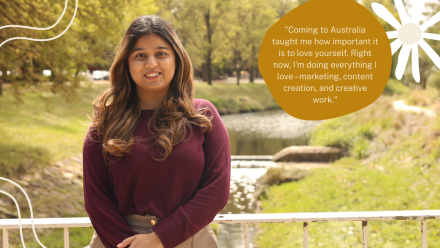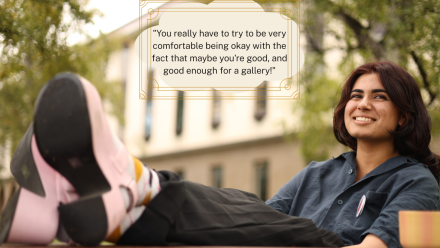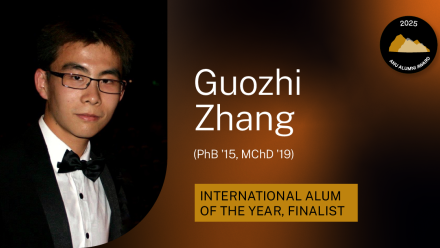Robert Williams
I would definitely say to younger people – get involved in your heritage.
Rob Williams is passionate about the preservation of Indigenous heritage and traces this back to going with his father, an Aboriginal Elder and Traditional Owner, to investigate Canberra's national parks for cultural materials.
He saw the opportunity to learn the history of his country and the stories of his Old People.
He is a descendant of the Ngambri Ngunnawal peoples and gave the Welcome to Country on behalf of the University community at the 2016 and 2017 ANU Commencement Address.
He is a passionate and enthusiastic advocate for his community, previously working at the Australian Institute of Aboriginal and Torres Strait Islander Studies (AIATSIS) and currently in the Aboriginal and Torres Strait Islander Health Unit, ¾«¶«´«Ã½app Centre for Epidemiology and Population Health, ANU.
He says that perhaps the secret to doing well at university is to choose a subject you're passionate about.
Archaeology and understanding his heritage have always been a key driving force for him. As a result, his journey at ANU has been enjoyable, empowering and invaluable, he says.
The highlight of his academic career so far was participating in three archaeological field seasons on Espiritu Santo, Efate, Tanna and Aneityum, in Vanuatu.
Rob is a member of the Indigenous Archaeologists Association and ANU Indigenous Alumni Committee. He is currently assisting with developing a program that will see Aboriginal and Torres Strait Islander youth undergo training in archaeological methods and heritage management, and experience what it is like to study at ANU. He has taken on the responsibility to be a role model for Indigenous youth and wants to use his unique position to demonstrate the importance of education.
In 2014, Rob received the ANU Chancellor's Letter of Commendation and the Malcolm Stewart Scholarship.
This year, Rob was awarded a PhD scholarship to undertake research on Futuna in South Vanuatu. This research is part of the ARC funded South Vanuatu Archaeology Project, and forms the first substantive archaeological investigation of Futuna.


